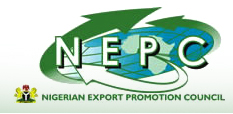A director in the Nigerian Export Promotion Council (NEPC), Olajide Ibrahim has appealed to the new administration to urgently approve the pre-shipment and Export Expansion Grant (EEG) to non-oil exporters.
The grant was suspended early this year for review.
The grant, otherwise known as the Export Development Fund (EDF), was initiated by NEPC in 2014 to assist small and medium-scale exporters.
The grant is particularly meant to boost the export of non-oil and agricultural commodities.
Ibrahim, who spoke yesterday in Lagos, said that the appeal was necessary because of the capital intensive nature of export business.
He said that the fund was needed to ensure quality assurance of export-bound products since majority of non-oil exports had been rejected due to poor quality.
“Grant for exporters is the major challenge now.
“We tried all our best to get it approved by the last administration, but to no avail.
“We hope that this present administration will quickly approve it because most exporters are stranded.
“This will be a major area where the present administration will do well if we want non-oil exports to receive a boost at this critical time the oil price is down,” he said.
Ibrahim said that the council had trained and re-trained exporters to improve the quality of products.
Meanwhile, the Executive Director/CEO of NEPC, Olusegun Awolowo has called on the Nigerian business community to take advantage of 50 billion dollar business opportunities in Iran.
Awolowo made the call yesterday at the ongoing 1st Iran solo exhibition holding in Lagos.
He said that the volume of trade between the two countries could grow from 50 million dollars to 500 million dollars annually if the opportunities that existed were harnessed.
He said that there were opportunities in the health, agriculture and power sectors.
The NEPC boss advised investors not to entertain fear, adding that the Islamic Republic of Iran was as safe as any other country.
Awolowo said that developed countries and some African countries had symbiotic trade relationship in terms of value and volume.
“Iran has been exporting and importing commodities to and from Europe and some African countries. There is a silver lining at the end of the tunnel,” he said.
He said that the nation could not afford to continually rely on oil, whose price had fallen at the global market.
Copyright Ships & Ports Ltd. Permission to use quotations from this article is granted subject to appropriate credit given to www.shipsandports.com.ng as the source.

